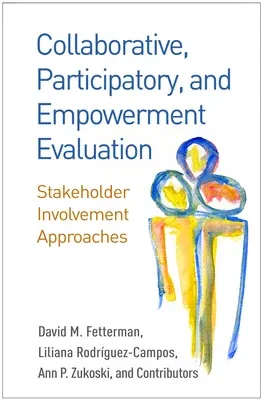David M Fetterman
(Author)Collaborative, Participatory, and Empowerment Evaluation: Stakeholder Involvement ApproachesPaperback, 28 November 2017

Qty
1
Turbo
Ships in 2 - 3 days
In Stock
Free Delivery
Cash on Delivery
15 Days
Free Returns
Secure Checkout

Print Length
172 pages
Language
English
Publisher
Guilford Publications
Date Published
28 Nov 2017
ISBN-10
1462532829
ISBN-13
9781462532827
Description
Product Details
Book Format:
Paperback
Country of Origin:
US
Date Published:
28 November 2017
Dimensions:
22.61 x
14.99 x
1.27 cm
ISBN-10:
1462532829
ISBN-13:
9781462532827
Language:
English
Pages:
172
Publisher:
Weight:
299.37 gm